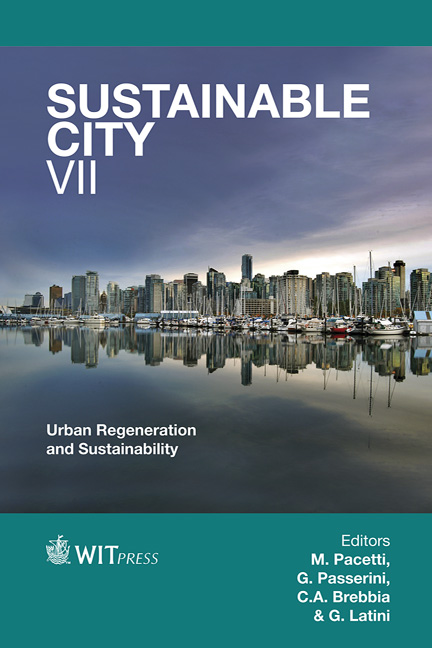Reconceptualising Urban Development In Exceptional Territories: Nicosia
Price
Free (open access)
Transaction
Volume
155
Pages
11
Page Range
365 - 375
Published
2012
Size
498 kb
Paper DOI
10.2495/SC120311
Copyright
WIT Press
Author(s)
R. A. Atun
Abstract
Urban territories have experienced certain transformations throughout different time-spans defined by certain benchmarks, depending on global (context free) and local (context dependent) parameters. Each territory has certain exceptional features according to its contextual characteristics; however, there are some territories which have certain ‘exceptionalities’ that become part of its very essence such as Nicosia, the divided capital of Cyprus. The disturbances, based on ethnicity, shaped the urban structures, affecting the overall process of urban development. In this paper, the development of city structure will be evaluated upon process of ‘urban transformation’ including historical evolution of city structure, the experienced urban disturbances resulting from division, and a future urban integration as an essential step towards sustainable urban development. Also, the exceptionality, altering in each step of urban transformation of the city, will be considered as an attribution of different dynamics related with ethnic, socio-political and environmental aspects of developments. Urban transformation is going to be reconceptualised into three parts with a retrospective approach. The first part of the article is focused on exploring the formation of city structure that is evolved throughout history upon utility-based developments. The second part focuses on assessing the deformation of city structure upon ethnic conflict between Turkish and Greek Cypriots, dominated by ‘power struggle’. The final part analyzes the reformation of city structure, attempted upon EU process where sustainable urban development is the goal. The substantial resources that has allocated in restructuring Nicosia will be questioned, where urban regeneration is accepted as a tool in re-structuring the city with exceptionality. Keywords: exceptional territories, sustainable urban development, urban division, urban integration, urban regeneration.
Keywords
exceptional territories, sustainable urban development, urban division, urban integration, urban regeneration.





